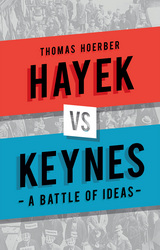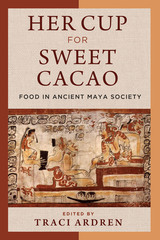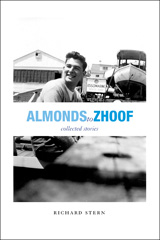
Honorable Mention, 2006 The Society of Midland Authors Adult Fiction Award
For decades, Richard Stern has been acclaimed as one of the American masters of the short story. Almonds to Zhoof: Collected Stories brings together for the first time forty-nine of Stern's best short works and novellas-from "Dr. Cahn's Visit," which The New Republic praised as "the very best very short story in the English language," to classics like "Teeth" and "Wanderers."
Stern's stories-witty, moving, always full of energy-never sacrifice storytelling to mere elegance or wandering wisdom. This collection demonstrates Stern's astonishing ability to portray people from all walks of life, their flawed relationships to ideas, their sometimes bizarre relationships with lovers and friends, their often brilliant, if skewed, appraisals of themselves. The stories always reflect an abiding compassion for his characters whoever they are and whatever their origins. All exist within the politics and workplaces and bedrooms of the real world. All are incorrigibly human.

Originally published in 1961, this shrewd, smartly written novel follows two American men traveling in Europe. Though both have struck out for the same continent, each man’s methods of and motives for travel lead him to have a very different experience than the other. Underlying it all is the premise that Europe--the contrast, the otherness of it--can be a refiner’s fire, deeply affecting a person’s character. Europe represents a crucial step in Stern’s development as a writer and stands as a witty, sharp point of entry into his writings and the writings of novelists who rose to prominence in the 1960s.
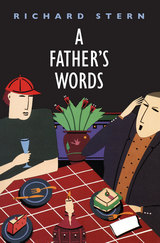
"Richard Stern's novels are robustly intelligent, very funny, and beguilingly humane. He knows as much as anyone writing American prose about family mischief, intellectual shenanigans, love blunders—and about writing American prose."—Philip Roth
"A delectable rhetorical display. . . . "—The New Yorker
"Anyone who has read Richard Stern's previous novels won't need to be told he is an unusually crisp and intelligent writer, with a sharp edge to his wit; and in A Father's Words he runs true to form. Many of the book's pleasures are incidental: jokes, intellectual cadenzas, agile turns of phrase . . . The author's powers of farcical invention climax in a brilliant, bitter episode where . . . the younger man proclaims his final failure . . . Mr. Stern has written an excellent novel."—John Gross, New York Times
"Richard Stern is American letters' unsung comic writer about serious matters . . . [A Father's Words] produced in this reviewer an apostolic desire to convince a wider audience to try Stern, especially the vintage Stern."—Doris Grumbach, Chicago Tribune
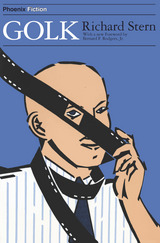
"Golk is a rich and marvelously detailed novel by a man with a cultivated intelligence; it is also the first really good book I have read about television."—Norman Mailer
"An original: sharp, funny, intelligent, rare. . . . Working in a clean, oblique style reminiscent of Nathanael West, Mr. Stern has written in Golk a first-rate comic novel, a piece of fiction that is at once about and loaded with that kind of recognition that junkies call the flash."—Joan Didion, National Review
"Golk is fantastic, funny, bitter, intelligent without weariness. Best of all Golk is pure—that is to say necessary. Without hokum."—Saul Bellow
"Golk (like Golk himself) is a wonderous conception. Its world responds to personification, not analysis, and personify it Mr. Stern has done. A book in a thousand."—Hugh Kenner
"What I like about Mr. Stern's fantasy is that it has been conceived and written with so much gaiety. Far from a political melodrama, it reminds me of a René Clair movie, and even the surrealist touches needed to bring out the power and pretense of the television industry are funny rather than symbolically grim."—Alfred Kazin, Reporter
"A mighty good book, altogether alive, full of beans and none of them spilled."—Flannery O'Connor
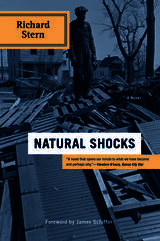
One reader writes, "I read Natural Shocks as a student, and this novel has stayed with me over the years. I recall the poignant pain-pleasure I experienced in reading of the approaching death of an 18-year old woman from melanoma, and the protagonist's unaccountable love and grief...rereading the novel, I am better able to place this moment within the book's deeper themes about writing, responsibility, accountability, betrayal, and love."
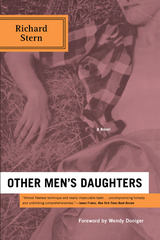
One reviewer writes, "I...was struck not simply by its psychological depth but particularly by the combination of toughness and tenderness through which romantic love was represented and discussed. The lack of sentimentality (in a novel about the refusal to live a life without love) was immensely important to me...and is likely ...to be immensely important ...today."
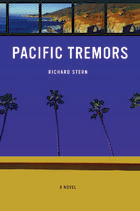
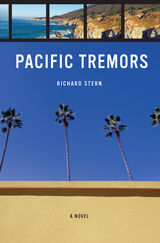
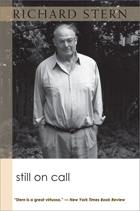
"Richard Stern is a literary treasure."
---Scott Turow
"Stern's new miscellany reveals a literary mind of the first order, thinking in elegant prose about dozens of interesting subjects."
---Philip Roth
"Stern is a great virtuoso. . . . [I]n an ailing literary culture, we should be grateful for a work like this and a career, too, spanning the American half-century."
---New York Times Book Review
"Stern's skill gives vitality to everything he treats."
---Edmund White, Los Angeles Times
"Like a gifted dancer in a small space, Stern has tremendous grace and ease on the page, executing dynamic turns and dips with a fine economy of motion and without sacrificing nuance."
---Booklist
Still on Call is the sixth and final collection of critically acclaimed novelist and educator Richard Stern. "Orderly miscellany" is the author's term for this aggregation of reflections, essays, reviews, reportage, commentary, and observations on writing and fellow writers, life, and contemporary culture.
The collection's three sections, Coasting, Posting, and Hosting, contain pieces that range from reflections on becoming a writer in the 1940s to assessments of such major writers and close colleagues as Saul Bellow, and Donald Justice to topical offerings from Stern's popular blog for the New Republic.
This wide-ranging collection is intended as the culmination of sixty years of the writing life but, first and foremost, as provocative entertainment. Stern is a prolific writer, and this selection of some of his highest-quality writing both educates and enthralls.
Richard Stern is the Helen A. Regenstein Emeritus Professor of English and of the Humanities at the University of Chicago and the author of nineteen works of fiction and nonfiction. His books include the novels A Father's Words and Golk, and, most recently, the collection What Is What Was. Stern has been the subject of two books: The Writings of Richard Stern: The Education of an Intellectual Everyman by David Garret Izzo and Richard Stern by James Schiffer.
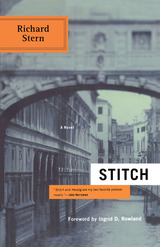
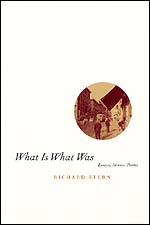
In the book's seven sections are analyses of the Wimbledon tennis tournament as an Anglification machine, of Silicon Valley at its shaky peak, of James and Dante as travel writers, a Lucretian look at today's cosmology, American fiction in detail and depth, a "thought experiment" for Clarence Thomas, a salvation scheme for Ross Perot, a semi-confession of the writer.
The book contains but isn't philosophy, criticism, opinion, reportage, or autobiography (although the author says it is as much of this as he plans to write). There is a recurrent theme, the ways in which actuality is made and remade in description, argument and narration, fictional and nonfictional, but above all, What Is What Was is a provocative entertainment by a writer who, as Philip Roth once said, "knows as much as anyone writing American prose about family mischief, intellectual shenanigans, love blunders—and about writing American prose."
READERS
Browse our collection.
PUBLISHERS
See BiblioVault's publisher services.
STUDENT SERVICES
Files for college accessibility offices.
UChicago Accessibility Resources
home | accessibility | search | about | contact us
BiblioVault ® 2001 - 2025
The University of Chicago Press



